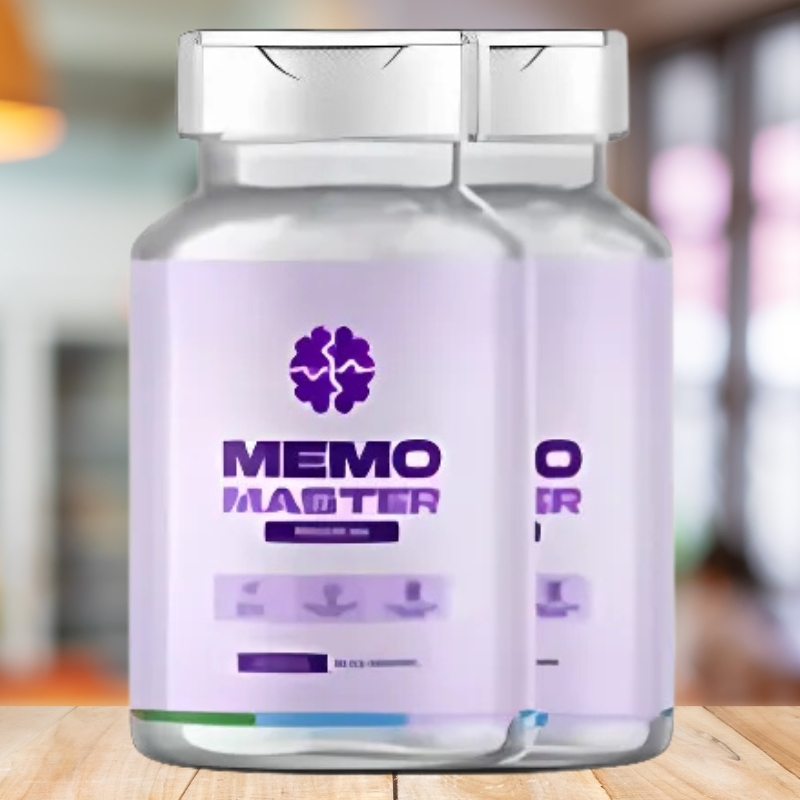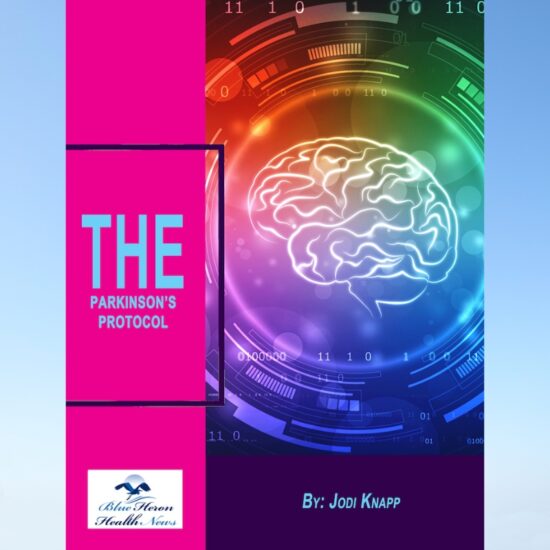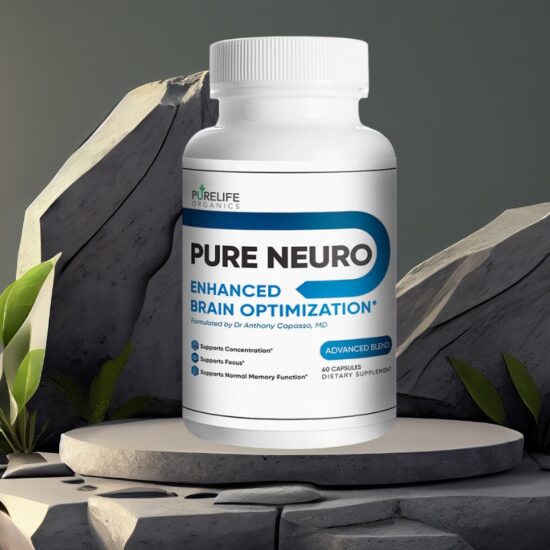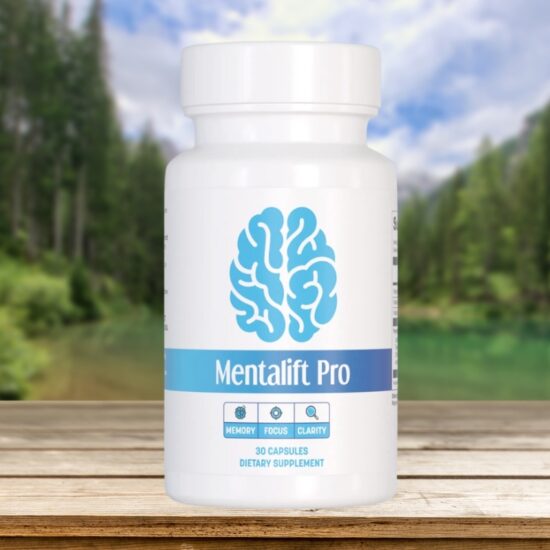Original price was: $79.00.$49.00Current price is: $49.00.
MemoMaster “Honey Ritual” is a premium dietary supplement crafted with a unique honey-based blend, designed to support everyday cognitive wellness and mental clarity. Infused with natural antioxidants and select botanicals, this formula offers a gentle, enjoyable way to complement your healthy lifestyle. Ideal for those seeking focus, sharper recall, and overall brain support, MemoMaster combines tradition with modern wellness principles in an easy-to-use format. Choose MemoMaster “Honey Ritual” to make a simple daily ritual part of your long-term self-care plan—because your mind deserves the same attention and nourishment as the rest of your body.
Description
In recent months, the MemoMaster “Honey Ritual” supplement has appeared across social media, video ads, and online health forums, promising a simple, natural way to improve memory, sharpen focus, and support brain health. Marketed as a blend of honey and other “time-tested” ingredients, the product positions itself as a gentle yet powerful tool for supporting cognitive wellness. For those searching for natural approaches to brain function, the appeal is clear: a sweet, familiar food combined with the promise of mental clarity.
From a medical and wellness perspective, our team at Sterling Medical Center understands why products like MemoMaster catch public attention. Cognitive health is an area of deep concern, especially as we age or encounter memory challenges. A natural supplement that claims to enhance mental sharpness without synthetic additives can sound attractive. However, as primary care and urgent care providers, our duty is to look beyond marketing language and evaluate whether such products truly deliver on their claims.
In this review-style overview, we will examine the MemoMaster “Honey Ritual” from multiple angles: its origins, the claims made in its promotional materials, the potential role of honey in brain health, the presence (or absence) of scientific evidence, and the importance of safe, evidence-based strategies for cognitive function. Our goal is not to over-promise or dismiss outright but to provide a clear, medically responsible perspective so readers can make informed decisions.
Before deciding whether MemoMaster belongs in your daily routine, it’s essential to understand both what’s being offered and the difference between marketing claims and peer-reviewed science. By the end of this article, you will be equipped with the knowledge to evaluate this and similar supplements with confidence—and to recognize safe, proven pathways for supporting your memory and overall health.
Origins of the “Honey Ritual” Concept
The phrase “Honey Ritual” draws on a blend of cultural tradition, nutritional folklore, and modern marketing strategy. Honey has been used for centuries in various forms of traditional medicine. Ancient civilizations—from Egypt to China—valued honey not only as a sweetener but as a food with healing potential. Historical texts describe its use in wound care, sore throat relief, and even as a tonic for vitality. These associations have helped honey earn a long-standing reputation as a “natural health booster,” making it an easy focal point for supplements like MemoMaster Honey Ritual.
In recent years, health marketers have leaned into this cultural familiarity, pairing honey with claims about memory enhancement and cognitive longevity. By labeling the product as a “ritual”, the branding taps into another powerful human instinct: the desire for a consistent, meaningful health practice. The word suggests a daily habit that is both comforting and purposeful, subtly implying long-term benefits without explicitly making medical guarantees.
The MemoMaster Honey Ritual marketing narrative often presents the product as a rediscovered secret—something ancient and pure that has been “brought back” to help modern consumers. In advertising materials, you might see pastoral imagery, traditional glass jars, or even references to “forgotten recipes” passed down through generations. The goal is to create trust and emotional resonance, positioning the supplement not as just another pill, but as part of a larger story about nature, tradition, and personal well-being.
From a healthcare provider’s standpoint, it’s important to acknowledge that while honey can be part of a balanced diet and has certain documented benefits—particularly its antioxidant content—there is no historical or scientific record of a specific honey-based ritual proven to reverse memory loss or prevent neurological conditions. Understanding this distinction is vital, as it helps consumers appreciate the gap between time-honored food traditions and modern supplement marketing.
MemoMaster Marketing & Public Claims
The MemoMaster “Honey Ritual” supplement is marketed with a combination of emotional storytelling, bold health promises, and familiar visual cues designed to appeal to people concerned about memory decline. Across social media ads, video promotions, and dedicated landing pages, the product is presented as an all-natural breakthrough capable of improving mental clarity, boosting recall, and supporting long-term cognitive health.
In many advertisements, viewers are introduced to a compelling narrative: a loved one struggling with forgetfulness or early signs of memory loss who experiences a remarkable turnaround after discovering the MemoMaster Honey Ritual. These stories often highlight themes of regained independence, emotional reconnection with family, and restored quality of life. While such accounts are moving, they are anecdotal in nature and lack the rigorous scientific evidence necessary to confirm cause-and-effect relationships.
The product’s promotional materials also use “trust signals”—visual elements intended to suggest safety and credibility. Examples include:
-
Badges or icons claiming “Made in the USA,” “GMP Certified,” or “FDA-Registered Facility” status.
-
References to “clinically proven” results, though without links to published studies.
-
Images of medical professionals or lab settings, which can create the impression of scientific endorsement without providing actual credentials or affiliations.
Additionally, the MemoMaster Honey Ritual brand frequently positions itself as a “hidden solution” that mainstream medicine or large pharmaceutical companies allegedly do not want the public to know about. This form of “insider” marketing leverages distrust toward big institutions, aiming to convince consumers they are gaining access to privileged, exclusive health knowledge.
From a medical perspective, such tactics require careful scrutiny. While there is nothing inherently wrong with honey-based supplements, exaggerated claims, lack of transparent ingredient lists, and absence of peer-reviewed research should prompt consumers to approach with caution. Emotional advertising can make a product feel more credible, but real medical legitimacy comes from reproducible, independent scientific testing—not marketing language.
Examining the Ingredients & Claimed Benefits
One of the first steps in evaluating any supplement—especially one making cognitive health claims—is to look at its ingredient profile. The challenge with MemoMaster “Honey Ritual” is that full ingredient transparency is not consistently provided on public-facing websites or advertisements. This lack of detail makes it difficult for consumers, healthcare providers, and researchers to assess its true safety, efficacy, and potential interactions with medications.
From the promotional language, MemoMaster appears to center its formula around honey as the primary active element. Honey is rich in natural sugars, antioxidants, trace minerals, and small amounts of enzymes. Scientific literature supports honey’s antioxidant activity, which may help protect cells from oxidative stress—a process implicated in aging and some neurodegenerative conditions. However, the antioxidant content in honey varies widely depending on its floral source, processing, and storage conditions.
Beyond honey, some marketing descriptions hint at additional ingredients, such as:
-
Herbal extracts – possibly including ginkgo biloba, turmeric, or bacopa monnieri, all of which have been studied for potential cognitive support.
-
Vitamins and minerals – like vitamin B12, folate, and magnesium, which are important for neurological health but require adequate dosing to be effective.
-
Amino acids – such as L-theanine or acetyl-L-carnitine, which have limited but intriguing research for supporting brain function.
It’s worth noting that while many of these ingredients have been studied individually, their inclusion in a proprietary blend—especially without disclosed dosages—means we cannot determine if MemoMaster contains effective levels or merely “label dressing” to enhance marketing appeal.
The claimed benefits of MemoMaster, according to various promotional sources, include:
-
Enhanced short-term and long-term memory.
-
Improved focus, concentration, and mental stamina.
-
Better mood and reduced brain fog.
-
Support for overall brain cell health.
From a medical standpoint, these claims are ambitious for any single supplement, especially one relying heavily on honey as its base. While honey may provide mild supportive nutrition, there is no conclusive evidence that it alone—or in combination with undisclosed additives—can produce significant, measurable improvements in memory or cognitive performance in the general population.
Transparency, peer-reviewed studies, and clear dosing guidelines are essential for validating such claims. Until MemoMaster provides these, it remains impossible to confirm whether the “Honey Ritual” is anything more than a marketing concept wrapped around a familiar natural food.
Evidence-Based Review: What the Science Says About Honey & Brain Health
Honey is one of the world’s oldest natural sweeteners, and it has long been recognized for its antimicrobial, antioxidant, and anti-inflammatory properties. But when it comes to brain health and memory support, the question is whether these properties translate into measurable cognitive benefits.
Antioxidant Effects
Several studies have explored honey’s antioxidant capacity, noting that its polyphenol content may help protect brain cells from oxidative stress—a factor that plays a role in age-related cognitive decline. Polyphenols such as flavonoids and phenolic acids in honey could theoretically reduce damage to neurons over time. However, these studies are typically small, laboratory-based, and do not directly measure improvements in memory or mental performance in large human populations.
Animal Studies
Some animal research has suggested that honey supplementation might improve learning and memory in models of oxidative stress or neurodegeneration. For example, rodent studies have shown improved spatial memory and reduced markers of oxidative damage when diets included certain types of honey. While these findings are promising, animal studies cannot be assumed to apply directly to human outcomes without further rigorous trials.
Human Research
The human evidence base is more limited. A few small clinical trials—often conducted with specific honeys like Tualang honey—have reported potential benefits for cognitive function, particularly in postmenopausal women or individuals experiencing mild cognitive decline. These trials tend to last only a few months and often involve other lifestyle changes, making it difficult to isolate honey’s effects.
Limitations of Current Research
-
Lack of long-term studies: Most honey-related cognitive research spans weeks to months, not years.
-
Variation in honey composition: Different floral sources and processing methods yield very different antioxidant profiles.
-
Dose uncertainty: The amount of honey needed for measurable brain benefits is not standardized—and high intake could raise sugar consumption to unhealthy levels.
-
No direct evidence for MemoMaster: Even if certain honeys have mild cognitive benefits, there is no published research specifically evaluating the MemoMaster “Honey Ritual” formula.
Summary of Scientific Perspective
Honey may offer mild supportive benefits for overall health, and its antioxidant profile suggests possible neuroprotective properties. However, current evidence does not support claims that honey-based supplements can reliably improve memory, reverse cognitive decline, or prevent neurodegenerative diseases. For consumers, this means honey can be a healthy addition to the diet in moderation, but it should not replace evidence-based medical care or clinically validated cognitive support strategies.
Medical Team’s Professional Perspective on MemoMaster
At Sterling Medical Center, our approach to any supplement review—especially one like MemoMaster “Honey Ritual”—is grounded in the principles of evidence-based medicine, patient safety, and transparent communication. We recognize the hope that products like this can inspire, particularly for individuals worried about memory decline or experiencing early cognitive changes. However, hope must be balanced with realistic expectations and an understanding of what the science truly shows.
From a professional medical standpoint, there are several important points for patients to consider:
-
Absence of Peer-Reviewed Clinical Trials
While honey itself has been studied for its nutritional and antioxidant properties, there are no peer-reviewed human clinical trials specifically evaluating MemoMaster’s formula or its effectiveness in improving memory or brain health. Without such studies, we cannot confirm whether the product offers anything beyond the potential benefits of standard dietary honey. -
Marketing vs. Medical Evidence
MemoMaster advertising leans heavily on emotional narratives, “insider” claims, and imagery suggesting medical endorsement. This is common in supplement marketing but should never be confused with actual clinical validation. A true medical claim requires reproducible evidence published in recognized scientific journals. -
Potential for Placebo Effect
It’s possible that some users may feel more focused or positive after starting a new supplement simply due to expectations—this is known as the placebo effect. While this isn’t inherently harmful, it is important for patients to understand that a perceived improvement doesn’t always equate to a proven therapeutic effect. -
Unknown Formulation & Safety Profile
The lack of a complete ingredient list and dosing information raises questions about both efficacy and safety, particularly for individuals on prescription medications, those with chronic health conditions, or those with allergies. Even natural products can cause adverse effects or interact with medications. -
Better Alternatives Exist
There are many safe, clinically studied approaches to supporting brain health—including lifestyle interventions, dietary patterns, and targeted supplementation under medical guidance—that have stronger evidence than the claims made by MemoMaster.
In our role as primary care and urgent care providers, our responsibility is to encourage patients to make informed decisions based on credible information—not just persuasive marketing. We encourage open conversations about supplements so we can help evaluate potential benefits, identify risks, and recommend evidence-based options tailored to individual needs.
Risks, Red Flags, and Consumer Protection Advice
When evaluating any supplement—especially one marketed heavily online like MemoMaster “Honey Ritual”—it’s important to be aware of potential pitfalls. Even if a product appears “natural” and harmless, there are specific risks that both consumers and healthcare providers should keep in mind.
1. Lack of Ingredient Transparency
MemoMaster’s promotional materials often fail to disclose a complete, detailed ingredient list with exact dosages. Without this information, it’s impossible to verify whether the formula contains clinically relevant amounts of beneficial compounds—or potentially harmful additives. For individuals with allergies, sensitivities, or chronic health conditions, this lack of transparency can be a serious safety concern.
2. Overreliance on Emotional Marketing
The use of moving personal stories, “miracle recovery” narratives, and heartwarming family imagery can be persuasive, but it is not a substitute for scientific evidence. These tactics can encourage impulse purchases before consumers have time to verify facts or consult a healthcare provider.
3. Fake Endorsements & Dubious Claims
Some MemoMaster ads have been reported to feature unauthorized images of doctors, celebrities, or media outlets—sometimes even using AI-generated “deepfake” videos. These techniques are meant to manufacture credibility, but they are a clear red flag in the world of consumer health products.
4. Subscription Traps & Refund Difficulties
Many reports about similar online supplement offers describe recurring billing that is not clearly disclosed at checkout. Customers may be charged monthly without realizing they have agreed to a subscription. Refund requests, even under “money-back guarantees,” are often met with delays or refusals.
5. Potential Health Risks
While honey is generally safe for most healthy adults, unknown or unlisted additives in a proprietary blend could cause:
-
Allergic reactions (especially in individuals sensitive to pollen or specific herbs).
-
Interactions with prescription medications.
-
Blood sugar spikes for people with diabetes.
How to Protect Yourself
If you are considering MemoMaster or any supplement, follow these steps:
-
Research the product thoroughly: Look for independent reviews, scientific studies, and official ingredient disclosures.
-
Check for third-party testing: Credible supplement brands often provide certificates of analysis (COAs) from independent labs.
-
Avoid pressure sales tactics: Steer clear of websites with countdown timers, limited-time offers, or claims that a product will “sell out today.”
-
Consult your healthcare provider: Especially important if you have a chronic condition, take prescription medications, or are pregnant or breastfeeding.
-
Use secure payment methods: Credit cards often provide better fraud protection than debit cards or direct transfers.
By recognizing these red flags and taking proactive steps, consumers can better protect themselves from financial loss, disappointment, and potential health complications.
Safe, Proven Strategies for Cognitive Wellness
While the appeal of a single supplement like MemoMaster “Honey Ritual” is understandable, true brain health is best supported by a combination of lifestyle, nutrition, and medical guidance backed by credible research. Our medical team recommends these evidence-based strategies for maintaining memory, focus, and overall cognitive function at any stage of life.
1. Adopt a Brain-Friendly Diet
The Mediterranean diet and the MIND diet (Mediterranean–DASH Intervention for Neurodegenerative Delay) are both supported by extensive research for brain health. These eating patterns emphasize:
-
Leafy greens and colorful vegetables for antioxidants.
-
Berries and citrus fruits for flavonoids linked to improved memory.
-
Whole grains for steady glucose supply to the brain.
-
Lean proteins—especially fatty fish rich in omega-3s like salmon, sardines, and mackerel.
-
Extra virgin olive oil and nuts for healthy fats that support neuron integrity.
2. Stay Physically Active
Regular exercise improves blood flow to the brain, encourages the growth of new neural connections, and supports mood stability. Aim for at least 150 minutes of moderate-intensity activity per week—brisk walking, cycling, swimming, or light strength training.
3. Prioritize Quality Sleep
Deep and REM sleep cycles are essential for consolidating memories and clearing metabolic waste from the brain. Most adults need 7–9 hours of consistent, quality sleep per night. Maintaining a regular bedtime routine and limiting screen exposure before bed can significantly improve rest quality.
4. Engage in Mental Stimulation
Challenging your brain keeps neural networks active and adaptable. Activities like learning a new language, playing strategy games, doing puzzles, or reading about unfamiliar topics can all contribute to cognitive resilience.
5. Maintain Strong Social Connections
Regular interaction with friends, family, and community members is linked to better cognitive health and lower rates of depression—both of which can impact memory and mental sharpness.
6. Manage Stress Effectively
Chronic stress and high cortisol levels can impair memory and learning. Techniques like mindfulness meditation, yoga, and breathing exercises help regulate the body’s stress response.
7. Schedule Regular Medical Checkups
Some memory issues are caused or worsened by treatable conditions such as thyroid imbalances, vitamin deficiencies (B12, folate), or unmanaged cardiovascular risk factors. Regular health screenings allow for early detection and intervention.
8. Consider Clinically Supported Supplements When Needed
Certain nutrients—such as vitamin D, omega-3 fatty acids, or specific B vitamins—can be beneficial for brain health when deficiencies are identified. Always choose products with clear labeling, third-party testing, and medical approval before use.
By combining these habits, individuals can create a strong foundation for long-term brain health that goes far beyond the uncertain promises of any single supplement.
Conclusion & Call to Action for Patients
The MemoMaster “Honey Ritual” supplement arrives on the market wrapped in the language of tradition, nature, and emotional storytelling. Its marketing taps into a powerful desire for simple, natural solutions to one of the most complex health concerns we face—protecting memory and supporting long-term brain function. Yet, as we have reviewed in detail, the current evidence does not support its claims in the way its advertising suggests.
While honey itself can be a healthy addition to a balanced diet, and while certain antioxidants in honey show potential neuroprotective properties, there is no peer-reviewed research specifically validating MemoMaster’s formula for memory improvement or disease prevention. The absence of transparent ingredient lists, standardized dosing, and independent testing means consumers cannot confidently evaluate its safety or efficacy.
From a medical perspective, we encourage patients to view products like MemoMaster as part of a broader landscape of supplement marketing—where the appeal of a “miracle” solution often outweighs the scientific evidence behind it. Choosing a supplement should never come down to persuasive advertising alone; it should involve verified research, professional guidance, and a clear understanding of potential benefits and risks.
If you are concerned about your memory, noticing changes in mental clarity, or simply want to be proactive about brain health, we recommend scheduling a visit with a qualified healthcare provider. Together, we can review your personal health profile, identify any modifiable risk factors, and build a personalized plan that may include lifestyle adjustments, targeted nutrition, and, where appropriate, evidence-based supplementation.
At Sterling Medical Center, our mission is to give patients the tools they need to make informed, confident choices. By focusing on proven strategies and seeking professional guidance, you can take meaningful steps toward protecting your cognitive health—without relying solely on unverified products or exaggerated promises.




